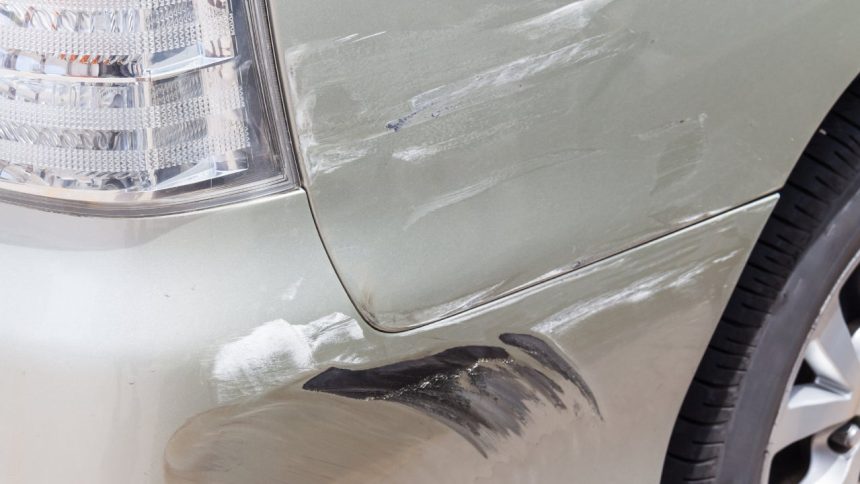Hit-and-run drivers in Louisiana, who in some cases appropriately deserve the ‘Ragin’ Cajun’ nickname, are committing a crime by fleeing the scene of an accident without exchanging information with the other driver or property owner. Letting your rage take control, or even simply giving in to stress or panic, can lead to significant legal and financial consequences in Louisiana if you don’t follow proper protocols after an accident. Here’s everything you need to know to avoid hit-and-run charges in Louisiana and the steps to take as a victim to increase the odds that your insurance claim gets approved.
Hit-and-runs in Louisiana
In Louisiana, a hit-and-run accident is defined as a collision where the driver responsible for an accident, or involved in an accident, does not stop to exchange personal and insurance information with the other driver. Hit-and-run accidents have been steadily increasing nationwide over the past several years. According to the National Highway Traffic Safety Administration (NHTSA), there were 2,932 hit-and-run fatalities in 2022, further contributing to the upward trend.
Louisiana hit-and-run laws
Louisiana hit-and-run laws state that the at-fault driver is fully liable in a hit-and-run collision. The consequences for causing a hit-and-run in Louisiana can be severe.
The driver responsible in a hit-and-run that results in property damage only will be fined a maximum of $500. They can also face up to six months in jail. If there are injuries or fatalities, the driver will be fined a maximum of $5,000, and may face jail time for up to 10 years with or without hard labor.
How hit-and-runs impact car insurance rates in Louisiana
At-fault drivers who are caught after a Louisiana hit-and-run are likely to see an increase in their insurance premium. Insurers may consider them high-risk drivers, especially if they already have other infractions on their record, which may make it difficult for them to find an insurer who is willing to work with them. They may also be required to file an SR-22 form with the DMV, which is a document that attests that they have an active insurance policy.
According to Quadrant Information Services data from October 2024, after an at-fault accident, the average cost of car insurance in Louisiana for full coverage rises from $3,696 to $5,036 per year. For comparison’s sake, the national average with a clean driving record is $2,388.
4 things to do after a hit-and-run in Louisiana
If you get into a hit-and-run accident, the first thing you should do is pull over safely, even if the other driver does not stop. Assess the situation and make sure that you and your passengers are not harmed. If anyone in the car needs medical aid, call 911. If there are no injuries, here is what you should do:
- Call the police: Even if your car does not sustain major damage, you should call the police immediately after a hit-and-run. Leaving the scene of an accident is illegal in Louisiana, and police will investigate it as a crime. The officer will ask you to recall any information you can about the vehicle and driver that hit you. They will also write a police report which you can share with your insurance company.
- Take photos of vehicle damage: Before leaving the scene, take some photos of your vehicle’s damage, if you can do so safely and away from traffic. These will be helpful when you go to file an insurance claim. If you or any of your passengers needed medical aid, keep a record of the treatment received.
- Speak with bystanders: Ask anyone at the scene if they can share information or footage of the accident; this could be useful in catching the hit-and-run driver.
- File an insurance claim: Contact your insurance company and notify them of the hit-and-run. An agent will walk you through the claim process, and explain what your policy will cover. Make sure to have the police report and photos of the damage ready to go to expedite the process.
Will car insurance cover a hit-and-run?
Depending on what coverage you have on your car insurance policy, you could have some protection against a hit-and-run in Louisiana. But if you have a minimum coverage policy with only liability coverage, it will not cover a hit-and-run. Louisiana does not require drivers to carry uninsured/underinsured motorist coverage, but if you do have this optional coverage, you could have some coverage against a hit-and-run for bodily injuries only.
However, if you have a full coverage car insurance policy, you will have some coverage in the event of a hit-and-run for both injuries and car damage. Medical payments coverage will pay for your medical expenses, as well as treatment for your passengers. Collision and comprehensive insurance will pay for your vehicle’s damages, but you’ll likely need to pay your deductible before your car insurance covers the rest. This deductible payment may be refundable if the hit-and-run driver is found and they have an active car insurance policy, since you’ll then be able to file a claim against their liability coverage. Keep in mind that filing any claim on your car insurance is likely to raise your rates, so even if you were not at fault, you could see some longer-term financial consequences.
Frequently asked questions
Read the full article here














